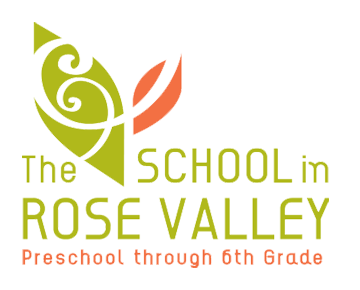 At The School in Rose Valley we understand the importance of outdoor play in early childhood education. Our expansive 9.5-acre wooded campus provides endless opportunities for students to stretch both their limbs and their imaginations. We believe that snow and mud should be played in, rain is not an excuse to stay indoors, and our classrooms and campus should house animals for children to tend. Our creek-side campus also acts as a laboratory for hands-on experimentation and authentic inquiry.
At The School in Rose Valley we understand the importance of outdoor play in early childhood education. Our expansive 9.5-acre wooded campus provides endless opportunities for students to stretch both their limbs and their imaginations. We believe that snow and mud should be played in, rain is not an excuse to stay indoors, and our classrooms and campus should house animals for children to tend. Our creek-side campus also acts as a laboratory for hands-on experimentation and authentic inquiry.
Physical education at The School in Rose Valley is considered an essential element of the curriculum. It encompasses the promotion of children’s physical development and health, and their participation in and enjoyment of physical activity and play. As such, we provide plenty of time and space for play: our students have outdoor recess times at least twice a day. Our preschool playground is a partially enclosed area that includes a large sandbox and a new playhouse, and there is also a looping, paved path for the use of tricycles, scooters and wagons. Older children have more freedom to play around the larger playgrounds, which include several climbing structures, swings, slides, sandboxes, playhouses, and more.
But the most treasured part of the campus is the woods. The SRV woods are the site of on-going chasing and fantasy play, where children build “forts” and work together in fluid social groups, interacting in complex ways as they construct, share resources, negotiate relationships and work out conflicts.
In addition to sports classes and unstructured play, students frequently engage in outdoor activities such as Apple Day, tending to the school garden, or caring for the school’s resident sheep and chickens. These activities help teach children about community and responsibility, as well as healthy eating.
The Importance of Outdoor Play in Early Childhood Education
 One of the reasons we prioritize outdoor play in early childhood education is because many of the developmental tasks children must achieve – exploring, risk-taking, fine motor skills, etc. – are most effectively learned through outdoor play. We also know that healthy children need to be physically active and have time to play, as well as knowing how to relax and eat properly.
One of the reasons we prioritize outdoor play in early childhood education is because many of the developmental tasks children must achieve – exploring, risk-taking, fine motor skills, etc. – are most effectively learned through outdoor play. We also know that healthy children need to be physically active and have time to play, as well as knowing how to relax and eat properly.
Outdoor play also stirs up children’s natural curiosity, encouraging them to make observations and build higher order skills (investigating, evaluating, problem-solving, and communicating). How does ice feel and sound? How do tadpoles turn into frogs? Why do some trees have knots? In the outdoor classroom children can learn math, science, gardening, construction, ecology, ornithology, vocabulary, weather, and much more. Children not only learn basic and fundamental information about how the world works, they are more likely to remember what they learned because it was meaningful.
To learn more about The School in Rose Valley or to visit our campus, please contact admissions@theschoolinrosevalley.org or call 610-566-1088.

